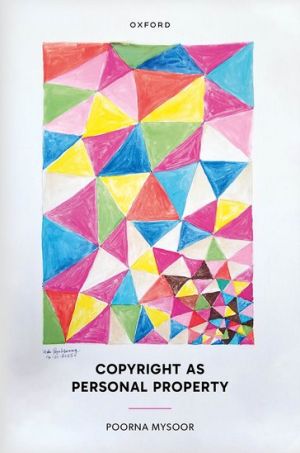
Copyright statutes in many jurisdictions clearly state that copyright is a property right. However, it's not always clear exactly how. Some see it as no more than a statutory right, while others think of it as a chose in action, like debts or shares. Copyright as Personal Property demonstrates why it is incorrect to conceptualize copyright as a chose in action and argues that, despite being an intangible asset, copyright is more analogous to land and chattels.
This book aims to achieve two main objectives. The first is to demonstrate much against popular belief that the analogies with land and chattels help contain the scope of copyright within normatively justifiable limits. Starting with the "thing-relatedness" of copyright, the monograph draws parallels with the acquisition of copyright, the nature of exclusionary rights, exclusive powers and privileges, their enforcement, and derivative interests. It employs concepts of property theory, such as numerus clausus, to provide the necessary benchmark to guide the boundaries of copyright. The second objective is to challenge the rigid and binary classification of property rights into choses in possession and choses in action. By addressing an important evolutionary gap in the conceptualization of property rights, this work lays the groundwork for a more sophisticated taxonomy, viewing property rights as existing on a spectrum. It goes on to provide the metrics to calibrate this spectrum, ensuring the incremental and orderly development of property rights.
Original and thought-provoking, the analogy this book develops with land and chattels shows how the unjustifiable expansion of copyright can be curbed and offers a more sophisticated classification of property rights than that based simply on tangibility.